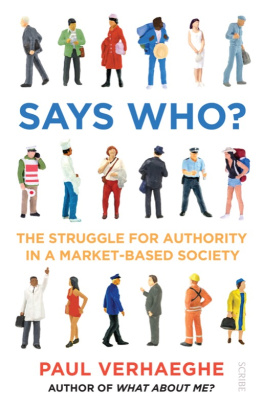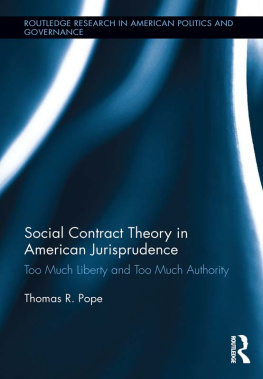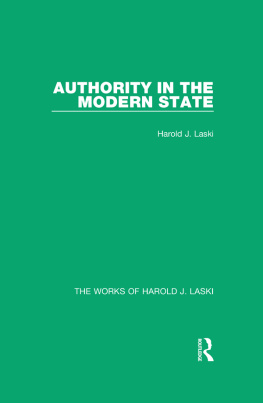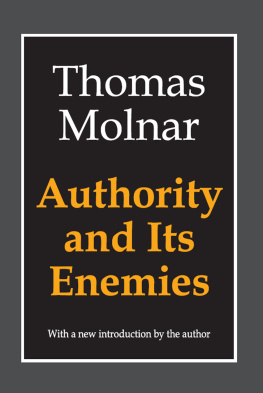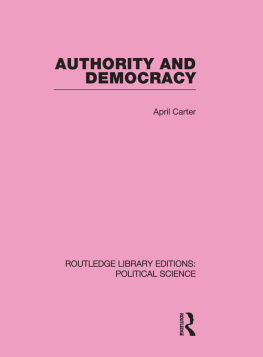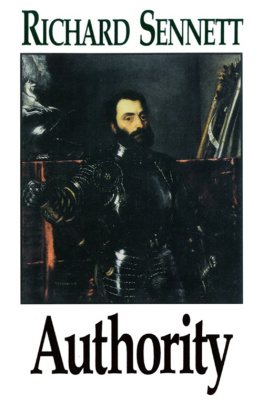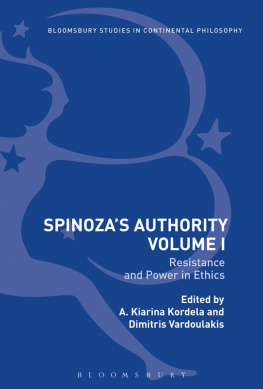
This edition is published by Muriwai Books www.pp-publishing.com
To join our mailing list for new titles or for issues with our books muriwaibooks@gmail.com
Or on Facebook
Text originally published in 1962 under the same title.
Muriwai Books 2018, all rights reserved. No part of this publication may be reproduced, stored in a retrieval system or transmitted by any means, electrical, mechanical or otherwise without the written permission of the copyright holder.
Publishers Note
Although in most cases we have retained the Authors original spelling and grammar to authentically reproduce the work of the Author and the original intent of such material, some additional notes and clarifications have been added for the modern readers benefit.
We have also made every effort to include all maps and illustrations of the original edition the limitations of formatting do not allow of including larger maps, we will upload as many of these maps as possible.
A GENERAL THEORY OF AUTHORITY
by
YVES R. SIMON
With an Introduction by
VUKAN KUIC
TABLE OF CONTENTS
Contents
DEDICATION
It seems most fitting to dedicate this book to the two institutions in America which afforded my husband the great opportunity of teaching and research in an atmosphere of intense intellectual stimulation and friendship: The University of Notre Dame and the Committee on Social Thought at the University of Chicago. The present work is to a large degree the result of the opportunities provided by these universities.
MRS. YVES R. SIMON
October 1962
CHAPTER 1The Bad Name of Authority
The issue of authority has such a bad reputation that a philosopher cannot discuss it without exposing himself to suspicion and malice. Yet authority is present in all phases of social life. The skill of anarchist thinkers may lend verisimilitude to systems marked by extensive dependence upon good will, tolerance, mutual understanding, persuasion and consent. But, within these pictures of smoothly operating institutions, authority is unmistakably present, or, if it is not, verisimilitude disappears and what is left is a lifeless mimicry of social relations. Why is it that men distrust so intensely a thing without which they cannot, by all evidences, live and act together?
As a matter of common experience, subjection to authority causes much discomfort and mortification; it involves the permanent foundation of an ever threatening, if not ever present, distress. But reluctance to bear such distress does not sufficiently account for the bad name of authority. Over and above this obvious reluctance, aversion to authority derives energy from sublime sources. Its really formidable power originates in the loftiest inclinations of the human soul. The case would be relatively simple and easy to deal with if the enemies of authority were only pride and passion. The fact is that authority is reputed to conflict with justice, life, truth and order.
AUTHORITY IN SEEMING CONFLICT WITH JUSTICE
The common way to secure a good or service is to surrender a good or service held equal in value. In a society where such method generally obtains, the services of plumbers and carpenters, as well as those of physicians and lawyers, are purchased at unpleasantly high cost. No wonder that some people feel a nostalgia for circumstances where an upper position gives a right to an abundance of facilities. Prices and wages forcibly kept low do not balance the goods and services procured. The exchange is unequal; more exactly, the transaction has only in part the character of an exchange; part of the service rendered is a tribute describable as the privilege of authority and disquietingly reminiscent of the stated sums which used to be paid periodically to the pirates of Barbary. The notion of authority thus comes to be associated with that of an exchange disrupted by sheer might.
AUTHORITY IN SEEMING CONFLICT WITH LIFE
Actions ordered by authority originate outside the agent; they bear a mark of externality in contrast with the spontaneousness which characterizes the operations of nature and life. Suppose that the things procured are altogether good: the fact that they are procured by authority still denies them the cherished perfection of proceeding from within. A man can behave well either because he is told to do so or by his own inclination. Good behavior obtained by commandment and obedience is still held defective inasmuch as it lacks spontaneity, life, voluntariness, liberty. The ideal subject of authoritarian rule would display all the submissiveness and determinateness of a machine. Other things being equal, a state of affairs brought about vitally is preferable to a state of affairs brought about mechanically. It may even be argued that lesser results obtained through vital processes are more valuable than greater results obtained by curbing the forces of life. Authority boasts of unique ability to assure peace: but the peace it procures is that of death. They make a solitude, and call it peace (Tacitus). Even when the effects intended are in line with nature, the way in which authority brings them about involves a sort of violence.
Authority becomes more detestable as the things subjected to its methods increase in dignity and pertain more directly to what is vital and spiritual in man. If, in order to cut down the rate of accidents, it is held expedient that street traffic be governed in machine-like fashion by the agents of an irresistible power, so let it be. The sacrifice of some spontaneity at the wheel of a car is not a very serious one. But when a power pretends to shape the moral personality of citizens, their beliefs, their tastes and their loves, the time for anger has come. Authority, if needed at all, should be relegated to the domains where lifelessness is least destructive. If, through the mechanization of less important functions, it helps to liberate the higher forms of life, so much the better. But keep it away from things noble and spiritual, and do not attempt to force a soul into this enemy of life.
AUTHORITY IN SEEMING CONFLICT WITH TRUTH
Among the lofty things that authority is reputed to threaten is the respect of our minds for truth. The anger commonly aroused by the notion that authority might supersede the power of truth is a metaphysical sentiment of great significance. We all have some experience of situations in which a problem of truth happens to be unjustifiably answered by submission to authority. Thus, if often happens that in international disputes incompatible versions of the same event are held by diverse governments; to spare ourselves the pangs of anxiety, the labors of research, and sometimes the humiliation of having been wrong, we may make it a rule that our assent will go to the version officially held by the government which is ours. A similar situation is common in the conflict of political parties and in dialogues between schools of thought. Our daily life is constantly troubled by vexing questions, ideological, ethical, political, esthetic, and factual, to which we cannot remain indifferent, to which we must give some sort of answer, and which involve such obscurities that an answer in terms of objective determination is very hard to reach. But most of the time these questions admit of cheap, easy, pacifying, and heartening answers if we make it a set rule to repeat what authority has said. The lovers of truth easily come to suspect that the whole system of authority is a pragmatic device, designed to spare weak souls the hardship of finding truth and abiding by it.
Next page


